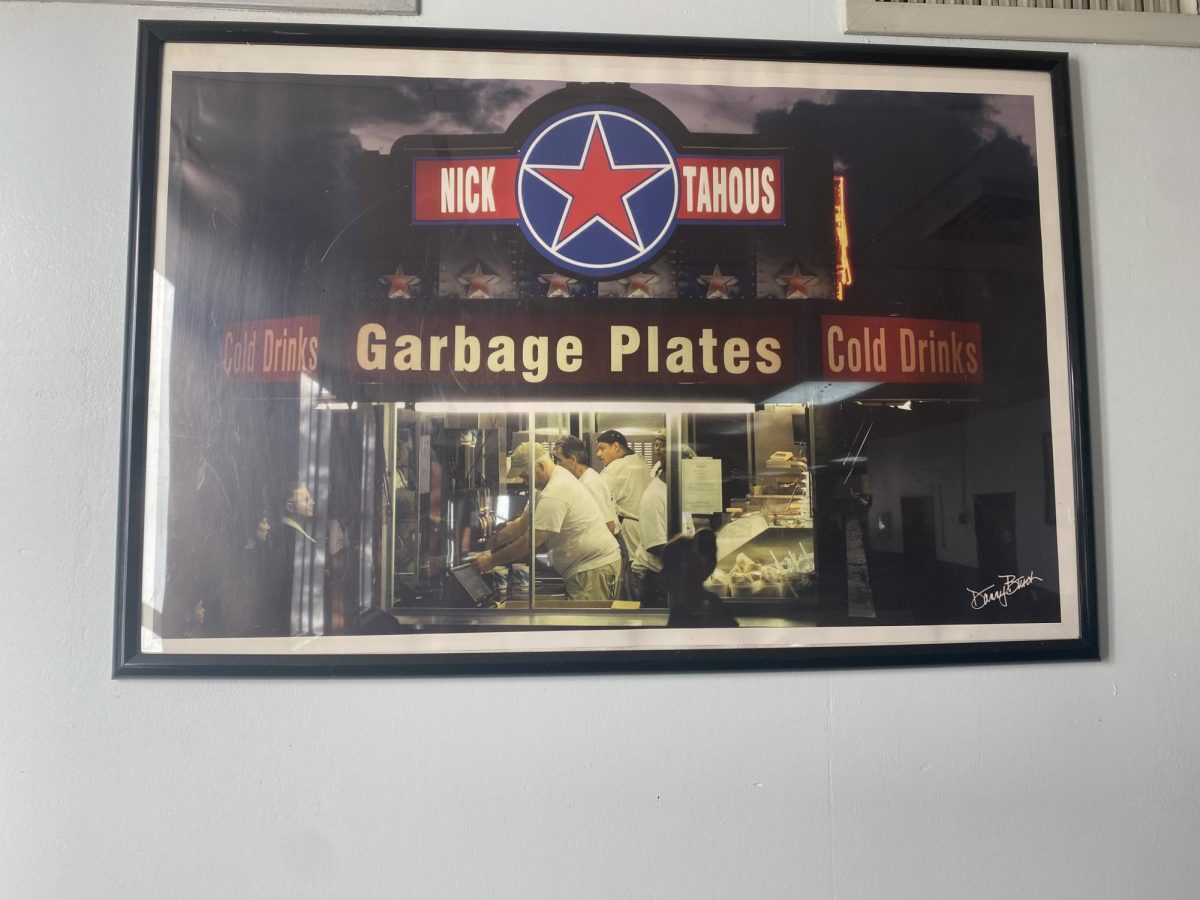By Ellen Paddock

After each practice student-athletes, Megan Loomis and Kaia Hubbard, have two choices –– they can rush to the dining hall for what they describe as a “hit and miss dinner,” or they can pay more to eat off-campus.
This is attributed to how COVID-19 changed the student dining experience. According to the Dining Services Director, Cathy Legacy, it has impacted cleaning and sanitizing protocols, employee procedures, supply availability and pricing.
These changes lead Hubbard to spend $30-$40 a week on food in addition to the meal plan she purchased for the semester. Despite having a meal plan, which usually implies unlimited access to food each visit, she was denied requests for larger portions of certain foods on more than one occasion.
“Sometimes you can only have one fruit cup,” Hubbard said. “If all I am going to eat for breakfast is fruit, why can I only have one of the tiny little fruit cups?”
Loomis has also noticed less availability and decreased food quality. On a few occasions, she was denied larger portions of food. Loomis said she asks for larger portions to compensate for other menu options that she refuses to eat because of the quality.
Loomis was served chicken that appeared yellow and inedible and described an alarming experience where she was served raw chicken.
“I remember, panko-crusted chicken, it was uncooked and it was pink. I didn’t eat at all that day,” Loomis said.
Both student-athletes feel they are not getting the adequate nutrition they need. Loomis said they end up spending money on groceries, not eating enough calories, or eating less nutritious food.
“I just eat whatever is in my room, like a cup of noodles, or I’m just not eating and that’s not gonna be good enough when I come from lift or practice,” Loomis said.
Due to their athletic schedules, Loomis and Hubbard are limited to two on-campus dinner options, Harrison dining hall and TRAX. When they don’t like what’s on the menu for dinner at Harrison, they are confined to the TRAX menu.
“TRAX is open, but again, it’s not good food. We went yesterday because dinner was awful and we got quesadillas, but I don’t want to eat a quesadilla every time dinner is awful,” Loomis said.
Loomis and Hubbard said there is usually one good dinner to look forward to a week and breakfast is consistently delicious. They said the difference between breakfast and dinner is variety.
Due to COVID-19 safety protocols, students have fewer options. In previous semesters there were self-serve stations for beverages, salads, sandwiches, soups and desserts. Now students are served prepackaged items.
“This was a big change for us since we know our customers love to customize their salads and sandwiches,” Legacy said. “The health and safety of our customers is BASC’s top priority.”
Additionally, seating in the dining halls is at a reduced capacity and students can only sit with their roommates or suitemates. Students can take their meals to go, but with predetermined portions.
Legacy said the pandemic has added budget challenges because of increased costs of food and supplies, however, their focus of serving delicious, nutritious and high-quality food remains the same. She said their team of chefs and food experts are extremely dedicated to delivering students high-quality meals every day regardless of the format.





















